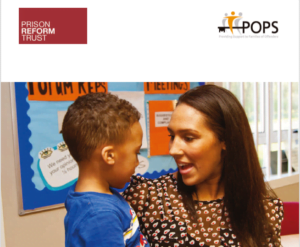Well-trod, but not inevitable, route from care to custody
A new (23 May 2016) Prison Reform Trust report, “In Care, Out of Trouble” is an independent review chaired by Lord Laming.
Sub-titled: “How the life chances of children in care can be transformed by protecting them from unnecessary involvement in the criminal justice system”, it sets out an action plan on how to reduce the number of young people in care progressing into custody.
The review is the product of a year’s intensive inquiry and is intended for practitioners as well as policy makers. Lord Laming wrote to all local authorities in England and Wales requesting information about looked after children in the criminal justice system; over 90 (60%) replied. These data were analysed alongside views from leading experts in the field, experienced practitioners and, above all, children and young people with first-hand experience of care and the criminal justice system.
Over 220 written submissions, a number of oral evidence sessions and regional meetings and visits provided an impressive wealth of experience and opinion on which to draw.
Looked after children are over-represented in the criminal justice system
The review found that around half of the children currently in custody in England and Wales have been in care at some point and makes the point that:
We are missing opportunities to turn young lives around and prevent future crime.
A critical element of this review is the focus it pays to the experiences of young people who have been in care and the criminal justice system. Some of the main themes were:
- Separation from their birth family understandably hurts and the care system must do more to help them come to terms with this.
- Frequent changes in who looks after them, where they live, where they go to school and who offers emotional and practical support damage their prospects.
- Support from peer mentors would help.
- Clarity about what they can expect from the care system is crucial, as is involvement in decisions that affect their lives.
- They often feel isolated and unsupported at critical moments, not least if they have to appear in court or spend time in custody.
- Some young people from minority ethnic backgrounds feel they are subject to negative stereotyping on the grounds of their race, particularly by the police, and that their cultural needs are not consistently met by children’s social care services.
Perhaps the review’s most important finding is that:
The rate at which a minority of children move from care into the criminal justice system is not inevitable. It can be reduced – for example by as much as 45% over four years in Surrey, as a result of effective local practice.
Desired outcomes and recommendations
The review sets out six key outcomes with detailed recommendations to realise these outcomes. The six outcomes are reproduced below:
- Outcome One: Strong and determined leadership at national and local level drives a strategic, multi-agency approach to protecting children in care from criminalisation.
- Outcome Two: The important role of early support for children and families at risk is recognised.
- Outcome Three: Good parenting by the state gives children in care the chance to thrive and protects them from criminalisation.
- Outcome Four: Needs and characteristics of looked after children in minority groups are taken into account in protecting them from criminalisation.
- Outcome Five: Effective prevention, diversion and rehabilitation – close joint work is pivotal between children’s social care, youth justice services, child and adolescent mental health services, the police, the Crown Prosecution Service, the courts and the secure estate.
- Outcome Six: Young people leaving care continue to benefit from good parenting and are protected from criminalisation.
The review recommends the establishment of a cross-departmental cabinet sub-committee to provide leadership, including through the development of a concordat on protecting looked after children from criminalisation which social care and education services based in local authorities, police forces and others will be called on to sign up to.
In addition, the review recommends better early support for children and families at risk, the strengthening of joint working between children’s social care services and criminal justice agencies, improvements in police practice to reduce the prosecution of children and young people in care and a greater emphasis on the importance of good parenting by the state.




